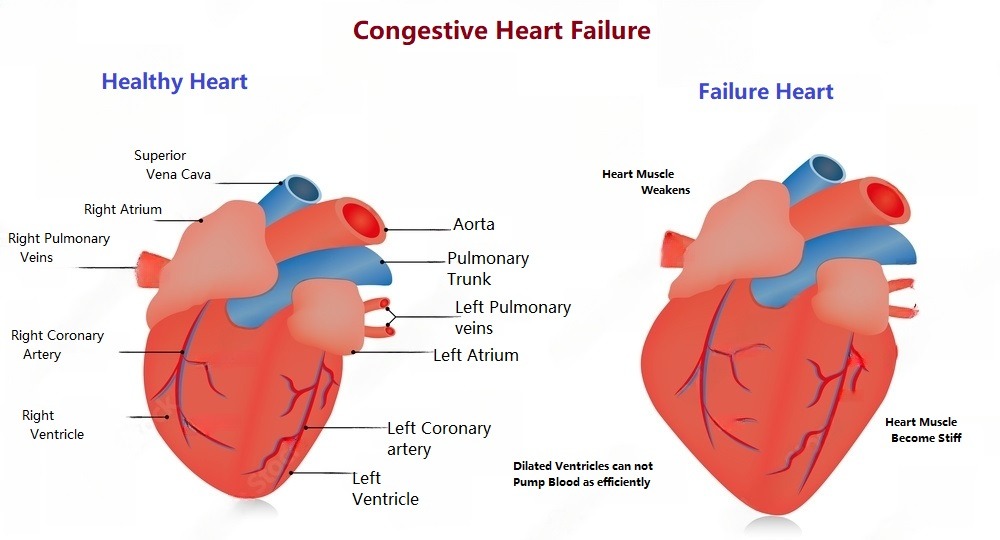Congestive Heart Failure: Causes, Symptoms, and Treatment
Discover congestive heart failure: its causes, symptoms, and treatment options. Learn how to manage and improve heart health effectively. #healthy and failure heart


Introduction
Congestive heart failure (CHF) is a chronic condition that affects the heart's ability to pump blood efficiently. It occurs when the heart muscles become weakened or damaged, leading to a buildup of fluid in the body. This blog post aims to provide an overview of CHF, including its causes, symptoms, and treatment options.
Causes
There are several factors that can contribute to the development of congestive heart failure:
Coronary artery disease: The most common cause of CHF is a narrowing of the coronary arteries, which supply blood to the heart muscle. When these arteries become blocked or damaged, it can lead to a heart attack and subsequent heart failure.
High blood pressure: Uncontrolled hypertension can strain the heart and weaken its muscles over time, increasing the risk of CHF.
Heart valve problems: Conditions such as aortic stenosis or mitral regurgitation can disrupt the normal flow of blood through the heart, causing it to work harder and potentially leading to heart failure.
Cardiomyopathy: This refers to diseases of the heart muscle itself, which can be inherited or caused by infections, alcohol abuse, or drug use.
Other factors: Diabetes, obesity, thyroid disorders, and certain medications can also contribute to the development of CHF.
Symptoms
The symptoms of congestive heart failure can vary depending on the severity of the condition, but common signs include:
Shortness of breath, especially during physical activity or when lying down
Fatigue and weakness
Swelling in the legs, ankles, and feet (edema)
Rapid or irregular heartbeat
Persistent cough or wheezing
Reduced ability to exercise
Weight gain due to fluid retention
If you experience any of these symptoms, it is important to seek medical attention for proper diagnosis and treatment.
Treatment
While congestive heart failure is a chronic condition, it can be managed effectively with the following treatment approaches:
Lifestyle changes: Adopting a heart-healthy diet, engaging in regular exercise, quitting smoking, and managing stress can all help improve heart function and reduce symptoms.
Medications: Your doctor may prescribe medications to control blood pressure, remove excess fluid, improve heart function, or manage underlying conditions.
Medical procedures: In some cases, surgical interventions such as coronary artery bypass grafting or heart valve repair or replacement may be necessary to improve heart function.
Devices: Implantable devices like pacemakers or defibrillators can help regulate heart rhythm and prevent complications.
Heart transplant: In severe cases, when other treatments are not effective, a heart transplant may be considered.
Conclusion
Congestive heart failure is a serious condition that requires ongoing management and treatment. By understanding its causes, recognizing the symptoms, and seeking appropriate medical care, individuals with CHF can lead fulfilling lives and reduce the risk of complications. If you suspect you may have congestive heart failure, consult your healthcare provider for a thorough evaluation and personalized treatment plan.
